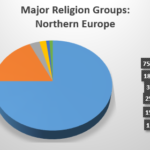Exploring Yoruba Religion, Biblical Concepts of Religion, and the Search for True Faith

Introduction
Understanding the nature of religion requires examining its roots across different cultures and sacred texts. This article delivers an in-depth look at the Yoruba religion , explores how religion is understood in the Bible , and discusses the complex issue of what defines the ‘true’ religion . Whether you are a student, a seeker, or someone interested in world religions, this guide offers comprehensive, actionable insights with verified sources and practical steps for further exploration.
The Yoruba Religion: Origins, Core Beliefs, and Practices
The Yoruba religion is one of the world’s oldest spiritual systems, originating among the Yoruba people of southwestern Nigeria and neighboring regions. This faith tradition is marked by a rich pantheon of deities, intricate rituals, and a worldview where the physical and spiritual realms are deeply intertwined.
Key Concepts and Worldview
Àṣẹ (Ase)
: Central to Yoruba spirituality is the concept of
Àṣẹ
, often translated as ‘life force,’ ‘authority,’ or ‘divine energy.’ Àṣẹ is believed to pervade all things-humans, nature, deities, and even inanimate objects-uniting the visible and invisible worlds. Every action, word, and thought interacts with this cosmic energy, shaping individual destiny and universal harmony
[1]
.
Orishas
: The Yoruba pantheon includes numerous divine beings called
Orishas
. Each Orisha governs particular elements of nature and aspects of human life (e.g., fertility, wisdom, war). While Olódùmarè is recognized as the supreme creator, Orishas act as intermediaries, making the divine accessible to people through rituals, prayers, and offerings
[2]
.
Divination and Ritual
: Rituals, sacrifices, and divination (especially through Ifá) are integral. Practitioners consult priests known as
Babalawos
for guidance, seeking to align individual destinies (orÃ) with the cosmic order. Divination is seen as a bridge to spiritual insight, aiding in decision-making and resolving crises
[3]
.
Body and Spirit Integration : Unlike many Western faiths, Yoruba belief does not sharply separate body and spirit. The body is viewed as sacred, with rituals performed directly on it to influence both material and spiritual outcomes. Concepts like orà (head/destiny) and ẹ̀mà (breath/life force) highlight this holistic approach [4] .
Practical Steps to Learn More or Participate
Those interested in Yoruba spirituality can take the following steps:
- Attend cultural festivals or Yoruba religious ceremonies where permitted.
- Read foundational texts and reputable academic studies on Yoruba cosmology and practice.
- Consult local or online Yoruba religious communities for educational resources and events.
- Seek out museums or cultural centers focused on West African heritage.
Before participating in any rituals, it is respectful and often required to seek guidance from experienced practitioners and understand local customs.
Religion in the Bible: Definitions and Perspectives
The Bible does not offer a single, systematic definition of ‘religion,’ but it does address religious practice, faith, and spiritual integrity in diverse ways, especially in the Old and New Testaments.
Old Testament Context
In the Hebrew Bible (Old Testament), religion is typically manifested through covenantal relationships , observance of laws (such as the Ten Commandments), ritual worship, and ethical living. The Israelites’ religious identity was closely tied to their obedience to God’s commandments, temple worship, and communal festivals. Key themes include justice, mercy, and loyalty to God.
New Testament Understanding
In the New Testament, the Greek term most closely associated with ‘religion’ is
threskeia
, which refers to outward acts of worship but is sometimes critiqued in favor of inward faith and genuine devotion. For example, James 1:27 (NIV) states: “Religion that God our Father accepts as pure and faultless is this: to look after orphans and widows in their distress and to keep oneself from being polluted by the world.” This passage highlights that true religion in a biblical sense emphasizes ethical conduct, compassion, and personal integrity over mere ritual.
How to Explore Biblical Religion Further
You can deepen your understanding of religion in the Bible by:
- Reading the Bible with scholarly commentaries focused on the cultural and historical context of religious practices.
- Participating in study groups at local churches or faith-based organizations.
- Exploring academic resources from seminaries or university religious studies departments, which often provide free educational content online.
- Consulting official resources such as Bible dictionaries and encyclopedias available at major libraries or reputable religious publishers.
If you are interested in joining a faith community, consider reaching out to established churches or interfaith organizations in your area.
Which is the True Religion? Exploring Diverse Perspectives
The question of which religion is the ‘true’ religion is both ancient and deeply complex. It has inspired countless debates among theologians, philosophers, and laypeople alike. Most major world religions, including Christianity, Islam, Judaism, and the Yoruba faith, offer their own answers, often rooted in sacred texts, tradition, and spiritual experience.

Source: dereligiones.com
Major Approaches to Truth in Religion
Exclusivism : Some traditions claim exclusive access to religious truth (e.g., classical Christian or Islamic doctrines of salvation). These groups may view their teachings as the only valid path to ultimate reality or salvation.
Inclusivism : Other perspectives acknowledge the possibility of truth in multiple religions, suggesting that different faiths may reflect various aspects of a single divine reality.
Pluralism : This approach argues that no single religion holds a monopoly on truth; all sincere faiths provide meaningful, if partial, access to the sacred or the divine.
Practical Guidance for Seekers
If you are searching for a faith tradition or evaluating religious claims, consider these steps:
- Engage in comparative study-read primary texts, visit places of worship, and converse with practitioners from different traditions.
- Reflect on your own values and experiences-what resonates with your sense of meaning, justice, and purpose?
- Consult academic and interfaith organizations for structured programs on world religions.
- Seek mentors or counselors familiar with spiritual direction or interfaith dialogue.
Remember that the process of seeking truth in religion is personal and may evolve over time. There is no universally recognized authority that determines the ‘true’ religion for all people; instead, individuals and communities make these decisions based on faith, evidence, and lived experience.
Accessing Resources and Further Steps
To access more information or support:

Source: dereligiones.com
- You may search for ‘Yoruba religion resources’ at major libraries, university religious studies departments, or cultural heritage organizations.
- For biblical studies, explore local church study groups, established seminaries, or official denominational websites (e.g., United Methodist Church, Roman Catholic Church, etc.).
- Look for public lectures, workshops, or interfaith events hosted by universities, museums, or nonprofit organizations.
- When in doubt about online resources, always verify the credibility of the organization and consult with local experts or trusted community leaders.
Potential Challenges and Solutions
Challenge: Information overload or conflicting claims. Solution: Focus on reputable sources, academic publications, and firsthand experiences. Take time to reflect and seek guidance from multiple perspectives.
Challenge: Access to authentic rituals or communities. Solution: Approach established cultural centers or religious organizations, and seek personal introductions where possible. Respect privacy and cultural protocols.
Summary
The Yoruba religion offers a profound spiritual system rooted in West African heritage, with unique beliefs about cosmic energy and the sacredness of life. The Bible discusses religion in terms of covenant, worship, and ethical living, inviting reflection on what it means to practice true faith. The search for the ‘true’ religion is a deeply personal journey, best undertaken with open inquiry, respect, and critical engagement with diverse traditions.
References
- [1] Wikipedia (2024). Yoruba religion overview, beliefs, and cosmology.
- [2] Ile Ifa (2025). Introduction to Yoruba Spirituality and central beliefs.
- [3] Fiveable (2024). Yoruba Religion: Vocab, Definition, Explanations.
- [4] Harvard Divinity School (2024). The Body in Yoruba Religion.
- [5] Atlanta University Center (2024). Traditional African Religions: Yoruba.






